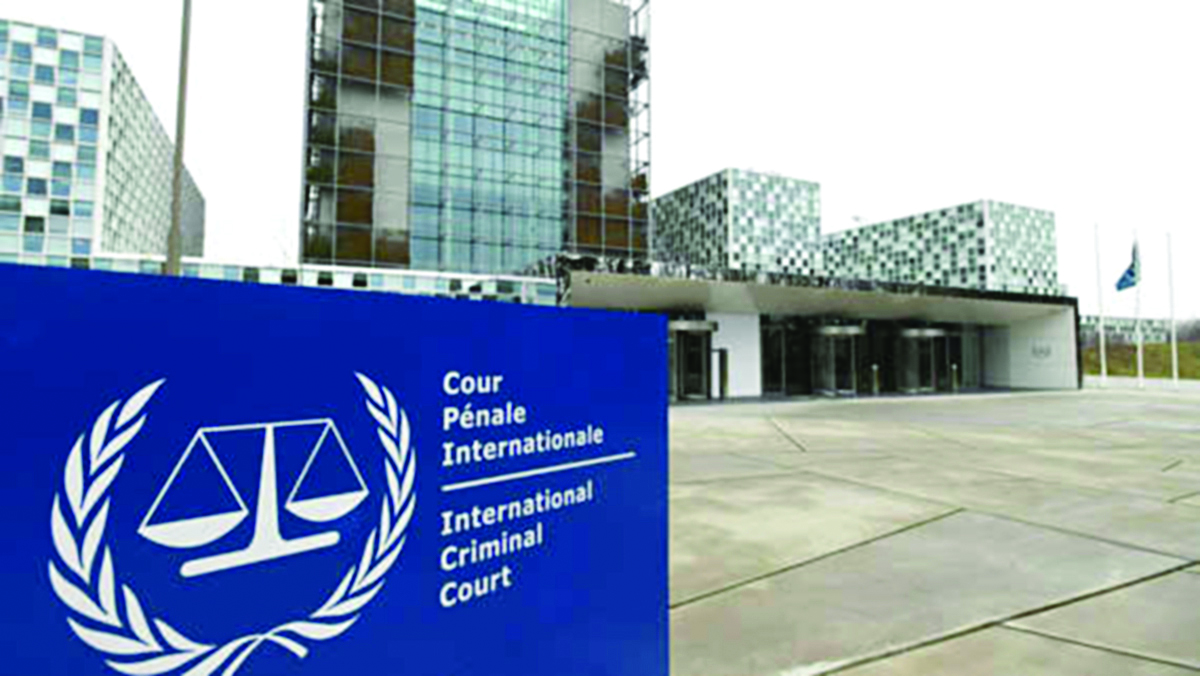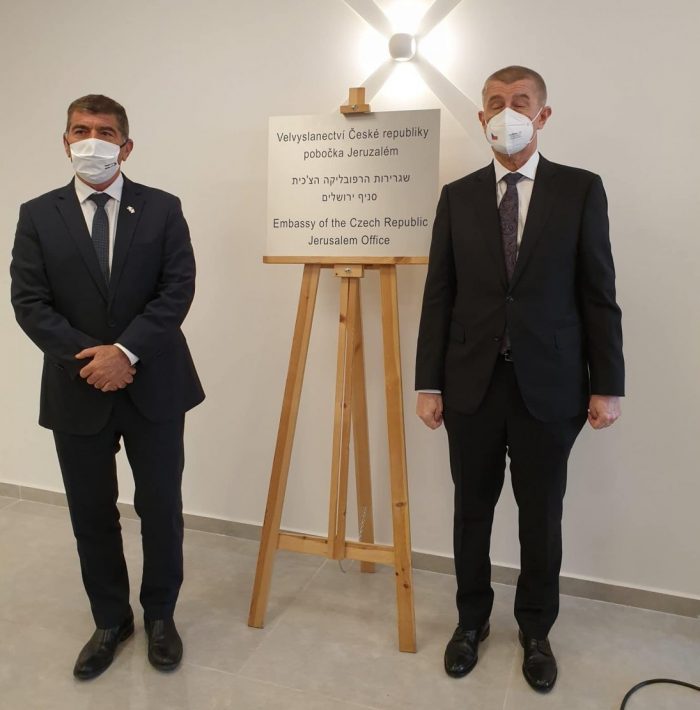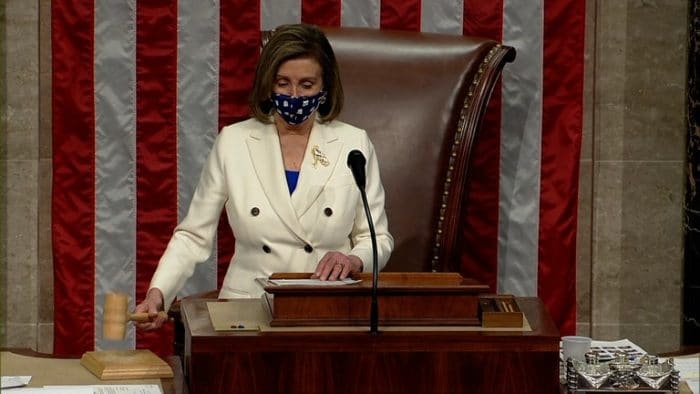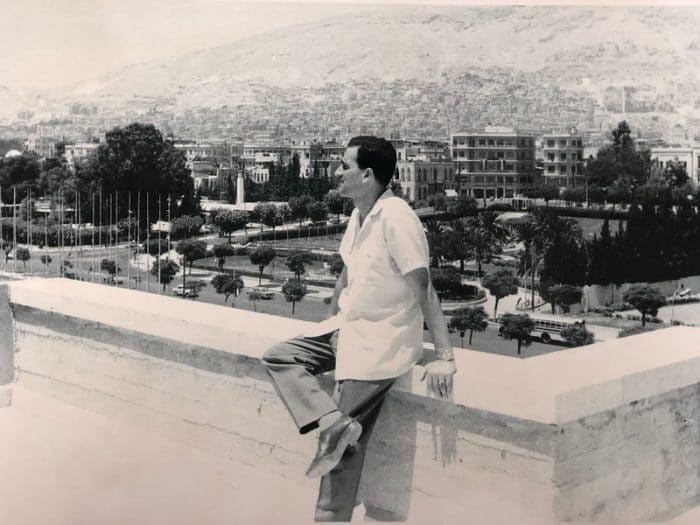By Shammai Siskind
On September 10, 2018, members of the Federalist Society, a conservative thinktank for law and public policy, gathered in the main conference room of the Mayflower Hotel in Washington, D.C.
The thunderstorms raging outside provided the perfect backdrop for the address they were about to receive from then-National Security Advisor John Bolton.
Bolton, well-known as a hardliner since coming to Washington in the 1980s, was about to use the venue to announce a pertinent policy stance of the Trump administration.
Almost a year earlier, in November 2017, a prosecutor of the International Criminal Court (ICC) in The Hague had submitted a request to superiors to open an investigation into alleged war crimes committed by the U.S. military in Afghanistan. One of the highlights of this proposed investigation were concerns over alleged abuse of Afghan detainees. Reportedly, there had been several instances in which U.S. interrogators had tortured detainees within Afghanistan as well as at black sites in Poland, Romania, and Lithuania. While no claims of such incidents were filed by Afghanistan or any other country party to the ICC convention, this did not prevent pre-investigation steps from moving forward.
Bolton made clear the United States sees no legitimacy in the ICC’s proceedings. “For all intents and purposes, the ICC is already dead to us,” Bolton told his listeners. He then went into detail stating what retaliatory steps would be taken in the event the Court takes actions against U.S. citizens. “We will ban its judges and prosecutors from entering the United States. We will sanction their funds in the U.S. financial system, and we will prosecute them in the U.S. criminal system.”
In addition to slamming the Court’s legitimacy with respect to prosecuting Americans, Bolton made another important point. Not only would the administration view the indictment of U.S. citizens as a form of attack, but going after America’s allies would be seen as equally problematic.
“If the court comes after us, Israel, or other U.S. allies, we will not sit quietly. [We] will use any means necessary to protect our citizens and those of our allies from unjust prosecution by this illegitimate court,” he warned.
While Bolton has long fallen from grace within the White House, the message conveyed by the former advisor nearly two years ago firmly remains the administration’s stance. Current officials have left little doubt of that as recent events have unfolded.
Since Bolton’s speech, the ICC’s efforts targeting both the United States and Israel have proceeded pretty much in tandem. In March, the Court announced it would be moving forward with a probe into possible war crimes committed by U.S. personnel in Afghanistan. The decision was a reversal from an ICC panel decision in April that blocked the investigation.
Secretary of State Mike Pompeo slammed the court for its overreach. “We’re going to take all the appropriate actions to ensure that American citizens are not hauled before this political body to settle political vendettas,” Pompeo said.
Weeks later, the Secretary spoke out against The Hague once again in response to the Court’s current deliberations on Israel’s alleged crimes. “A court that attempts to exercise its power outside its jurisdiction is a political tool that makes a mockery of the law and due process.”
The Secretary correctly pointed out that Israel, like the United States, is not subject to the ICC authority since neither nation is a signatory to the Rome Statute, the international convention that created the Court. Pompeo then warned, “If the ICC continues down its current course, we will exact consequences.”
A Contentious History
A confrontation between the ICC and both Israel and the U.S. was almost inevitable considering the two countries’ history with the Court.
The strife between the U.S. and the ICC goes back to the ICC’s founding over twenty years ago when the court received its mandate. When the Rome Statute was drawn up in 1998, it was, at first, appealing to the United States. Who wouldn’t support an international court of justice designed to rid the world of the impunity enjoyed by the worst war criminals and human rights violators? Bill Clinton signed the United States onto the Statute in December 2000. Shortly afterward, however, policymakers took an about-face. The alarming implications of the Rome Statute quickly became apparent to the majority of the U.S. Congress. The idea that American military officers would be able to be tried and punished by a legal body outside of the United States was too much for even the most globalist members of the Senate and House. In August 2002, just a few months following the government’s formal notice that it would not ratify the Statute, Congress passed the American Service-Members’ Protection Act (ASPA), which contained a number of clauses, including authorization of the President to “use all means necessary and appropriate to bring about the release of any U.S. or allied personnel being detained by, on behalf of, or at the request of the International Criminal Court.”
Israel had a similar, although less roundabout, story of rejecting the ICC’s mandate. Israel’s delegation at the Rome Diplomatic Conference saw the provision to adjudicate cases of “transferring populations into occupied territory” as custom tailored to delegitimize the West Bank settlements. Indeed, the delegates wondered why a list of triable crimes that consists of such acts as “genocide” and “crimes against humanity” should include human settlement, even in cases where, for sake of argument, the land is wrongly occupied. Alas, Israel’s critics have for years compared settlements in Judea and Samaria to the worst human rights violations. This fact makes Israel’s hesitancy toward the Statute all the more prophetic.
In recent years, the Criminal Court in The Hague has been spurred to investigate Israel in response to several incidents, all of which were extremely low-scale relative to other ongoing global conflicts. These included the 2010 flotilla raid in which the Comoros-flagged Mavi Marmara was boarded by Israeli commandos after trying to run Israel’s blockade of the Hamas-controlled Strip. Several years later, the ICC opened a case on Israel’s 2014 Gaza operation dubbed “Protective Edge” claiming that wonton attacks against civilian populations centers were orchestrated and ordered by high ranking Israeli officers and ministers. Both these and other similar investigations have never led to any actual steps being taken against Israel or Israeli officials. But this time around feels markedly different.
Poised to Strike
In early May, the ICC’s chief prosecutor Fatou Bensouda submitted a request to a three-member panel of Court judges to seek the go-ahead for another probe into “Israeli war crimes in Gaza, the West Bank, and East Jerusalem.” The submission came after declaring that previous arrangements between Israel and the Palestinian Authority did not prevent the Court from acting, this despite clearly implied stipulations in such agreements – such as the 1993 Oslo Accords – that conflicts between the parties would remain outside the courtrooms of The Hague.
Over the next eight weeks, Israel became increasingly wary that ICC proceedings against Israeli officials would soon be underway. On July 16, Israeli media reported that the government was compiling an internal list of current and former Israeli leaders, both military and political, that could possibly be targets of an ICC case. While the complete roster of names is not known –apparently many, if not most, of the individuals do not even know their names are on it – the list almost certainly includes the likes of former IDF chief of staff Benny Gantz, former defense minister Naftali Bennet, former defense minister and current opposition MK Moshe Ya’alon, current IDF chief Aviv Kohavi, who during the 2014 war headed Israel’s Military Intelligence, and even Prime Minister Benjamin Netanyahu himself.
If reports of this secret list are true, it would represent the next step in Israel preparing for an ICC action. According to Hebrew media reports, Israel had already in June appointed a team culled from the National Security Council, the justice and foreign ministries, and the international department of the IDF military prosecution. The job of this group is to coordinate the country’s response to any ICC proceedings, a job which very likely includes preparing an actual defense for a future ICC trial.
Israel understands it must be ready for the worst. The consequences of an ICC indictment could be serious indeed. Even though the U.S. and Israel find themselves in a similar position, the battles they are fighting as well as the stakes of those battles are drastically different. The risk to the United States of their personnel actually suffering penalties from ICC prosecution is quite low. For Israel, though, this is not the case. If an IDF officer, for instance, is found guilty of war crimes by the Court, he or she would be at risk of immediate arrest upon stepping foot in a country party to the Rome Statute. Various diplomatic arrangements between countries could make matters even worse, as a nation who is not a signatory to the Statute could be forced to extradite Israelis to a country that is.
The Pushback
Israel, for its part, can do little other than brace for a possible legal bout. The United States, on the other hand, is taking a much more aggressive stance.
Already in June the administration announced it was placing sanctions on ICC personnel including economic penalties and travel restrictions. Prosecutor Bensouda has already received a shot across the bow last year when the State Department revoked her U.S. visa. Now, true to the policy iterated by John Bolton two years ago, the administration has put full sanctions into place. As the U.S. made clear, the harsh move was also to send a message regarding Israel. Shortly before the penalties were announced, Secretary Pompeo told a podcast hosted by the American Enterprise Institute that he believes The Hague and the world will soon see “that we are determined to prevent having Americans and our friends and allies in Israel and elsewhere hauled in by this corrupt ICC.”
While Israel has no direct part in these policy decisions, officials are banking on the effect they may have in getting the ICC to back off. Shortly after they were announced, Prime Minister Netanyahu expressed his gratitude for the decision. “I would like to thank President Trump and the Secretary of State Pompeo for their decision to sanction the International Court in The Hague,” said the premier to a press conference in early June.
Will these steps by the U.S. have any deterring effect? That will likely remain in the realm of speculation. What is known, however, is that Israel recently benefited from a major reprieve, although not quite a victory. A few weeks ago, the ICC adjourned for its summer vacation without delivering a decision on beginning an investigation on Israel. This, despite consistent reports for weeks that such a decision was imminent. Some suggested this was the ICC signaling it was putting a final stop to the Israel case. But Israeli officials are not optimistic. Hebrew media reports that most legal experts in Jerusalem believe the Court will resume work on the case relatively soon.
On Principle
In all likelihood, the saga of the ICC’s investigations into Israel and the U.S. will be with us for the foreseeable future.
Both Jerusalem and Washington now have the chance to expose the ICC for the biased organization which it has become. With only four successful convictions since 2002 and having completely ignored other nations that actually codify human rights abuses in their laws, it is not only the Court’s efficacy but its very legitimacy as an organization that should and must be called into question.
But perhaps more fundamentally, the ICC’s efforts regarding Israel and America are an obvious breach of the Court’s own mandate.
The ICC was founded for a very specific purpose, and that is to solve the problem of impunity. Millions of victims of war crimes have over the years been left without any recourse due to the fact that no local or international body was capable or willing to deliver justice. In other words, the ICC is meant to investigate and prosecute crimes committed in countries that are not addressing the crimes of their own citizens. The cases of the United States and Israel do not meet this central criteria. Both nations have professional, functional legal systems that consistently prosecute both military and civil crimes. As Pompeo stated when announcing U.S. sanctions on the ICC: “When our own people do wrong, we lawfully punish those individuals, as rare as they are, who tarnish the reputation of our great U.S. military and our intelligence services,” said the secretary. “We hold our own accountable better than the ICC has done for the worst perpetrators of mass criminal atrocities.” Similarly, Israel’s military maintains a massive legal bureaucracy in the form of its Military Advocate General (MAG) Corps, an organization notoriously known for its heavy demands on the IDF’s operational procedures. For the 2014 Gaza war alone, a conflict that lasted barely six weeks, the MAG opened no fewer than nineteen criminal investigations against soldiers suspected of “laws-of-warfare violations.”
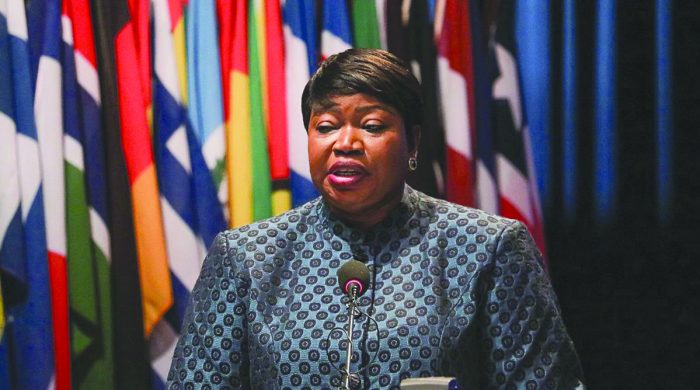
More than any other sign of corruption or bias, it is the fact that Israel and the United States are outside any reasonable understanding of the ICC’s mandate that exposes what these investigations are really about. The Court is attempting to advance policy agendas in the guise of judicial proceeding. In the case of Israel specifically, this reality could hardly be any clearer. Apparently, some ICC officials believe that by branding Israeli actions of self-defense as war crimes – a status that, as explained, would have real world consequences – they can strong-arm its leaders into policy decisions of their liking and prevent Israel from taking such actions in the future. Even outside parties – many of whom signatories to the Rome Statute – have voiced their opinions that the ICC’s intended probe into Israel is a tool to ultimately force concessions from Israel vis-à-vis the Palestinian conflict. For example, in a petition delivered to the ICC several months ago, Germany declared any investigation into Israel by the Court illegitimate and stated that a resolution to the regional conflict “can be achieved only through direct negotiations between Israelis and Palestinians.” Similar petitions have been sent to The Hague by six additional countries including Australia, the Czech Republic, and Austria.
Despite the gradual progress and some moderate victories, Israel still has a long road ahead until it is in the clear from the ICC threat. No doubt this battle will continue to increase in priority as the ICC circles its target.
Categorised in: Local News

